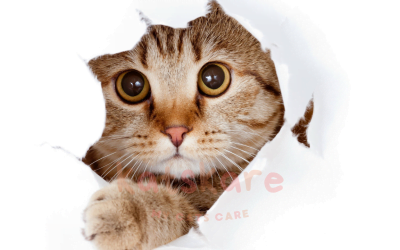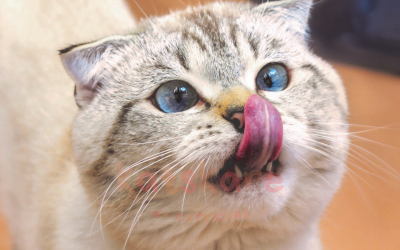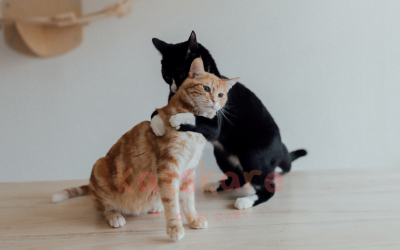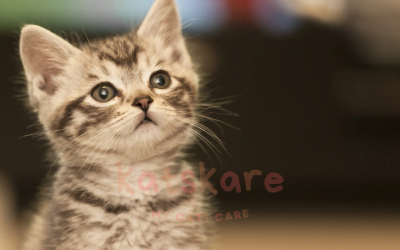Cats FAQs and Knowledge Sharing
My Cats Care FAQs, all about kittens and cats!
Here are the 50 most frequently asked questions with answers on the topic “Cats FAQs”:
| Question | Answer |
|---|---|
| 1. What is the average lifespan of a domestic cat? | The average lifespan of a domestic cat is around 12 to 15 years, but some can live up to 20 years or more. |
| 2. How do I choose the right cat breed for me? | Consider factors like personality, grooming needs, and activity level to find a breed that suits your lifestyle. |
| 3. What vaccinations does my cat need? | Common vaccinations for cats include rabies, feline distemper, and feline leukemia. Consult your vet for the best schedule. |
| 4. How often should I take my cat to the vet? | It’s recommended to take your cat for a check-up at least once a year, or more often if they have health issues. |
| 5. How can I train my cat to use the litter box? | Use a suitable litter box, place it in a quiet spot, and reward your cat for using it. Be patient and consistent during training. |
| 6. What are some common health issues in cats? | Common health issues in cats include urinary tract problems, dental issues, and respiratory infections. |
| 7. How do I introduce my cat to other pets? | Gradually introduce them in a controlled environment, using scent swapping and supervised interactions. |
| 8. How much should I feed my cat? | The amount depends on the cat’s age, weight, and activity level. Follow the guidelines on the cat food packaging or consult your vet. |
| 9. Why is my cat scratching furniture? | Cats scratch to mark territory, sharpen claws, and stretch. Provide a scratching post and discourage furniture scratching. |
| 10. How can I prevent my cat from hairballs? | Regular grooming can help reduce hairballs. Consider using hairball-prevention cat food and consult your vet for advice. |
| 11. Why does my cat meow excessively? | Excessive meowing can signal hunger, stress, or illness. Observe your cat’s behavior to determine the cause. |
| 12. How do I help my cat adjust to a new home? | Gradually introduce your cat to the new environment, provide comfort, and maintain a routine. |
| 13. Is it safe for cats to eat certain human foods? | Some human foods can be toxic to cats, such as chocolate, onions, and grapes. Avoid feeding these to your cat. |
| 14. How can I keep my indoor cat entertained? | Provide toys, scratching posts, and interactive playtime to keep your indoor cat mentally stimulated. |
| 15. What should I do if my cat stops eating? | Loss of appetite can indicate various health issues. Consult your vet if your cat refuses to eat for more than 24 hours. |
| 16. How do I prevent fleas and ticks on my cat? | Use flea and tick preventatives recommended by your vet and regularly inspect your cat’s fur for signs of pests. |
| 17. Can I toilet train my cat? | Yes, some cats can be toilet trained using specialized training kits, but it requires patience and consistency. |
| 18. How can I discourage my cat from scratching people? | Redirect their attention to toys or scratching posts when they exhibit this behavior. Avoid rough play that might encourage scratching. |
| 19. What are the signs of a sick cat? | Signs of illness can include lethargy, vomiting, diarrhea, changes in appetite, and unusual behavior. Consult your vet if you notice any of these symptoms. |
| 20. How do I introduce a new cat to my resident cat? | Gradually introduce the cats’ scents to each other before face-to-face meetings, and supervise initial interactions. |
| 21. Can cats be trained to do tricks? | Yes, cats can learn tricks through positive reinforcement and rewards. Training should be short, fun, and consistent. |
| 22. How do I groom my long-haired cat? | Regular brushing helps prevent matting and reduces shedding. Be gentle and use cat-specific grooming tools. |
| 23. Why does my cat knead me with their paws? | Kneading is a natural behavior from kittenhood, associated with comfort and contentment. |
| 24. How can I stop my cat from scratching the carpet? | Provide sufficient scratching alternatives like posts and pads, and use deterrent sprays on the carpet. |
| 25. How do I know if my cat is stressed? | Signs of stress in cats include hiding, excessive grooming, changes in appetite, and aggression. |
| 26. Can cats be leash trained? | Yes, some cats can be leash trained, but it requires patience and proper training techniques. |
| 27. How do I keep my cat’s teeth healthy? | Regular dental check-ups, brushing, and dental treats can help maintain your cat’s oral health. |
| 28. Is it normal for cats to sleep a lot? | Yes, cats are crepuscular animals, meaning they are most active during dawn and dusk and tend to sleep during the day and night. |
| 29. Can cats be left alone for extended periods? | Cats are relatively independent, but they still need attention and care. Avoid leaving them alone for too long, especially without proper arrangements. |
| 30. Why is my cat suddenly aggressive? | Sudden aggression can be triggered by fear, pain, or territorial issues. Consult your vet to rule out medical causes and seek behavior advice. |
| 31. How do I create a safe outdoor space for my cat? | A secure outdoor enclosure or a catio can provide a safe environment for your cat to enjoy the outdoors. |
| 32. Can cats get sunburned? | Yes, cats with light-colored fur are more susceptible to sunburn. Limit their sun exposure, especially during peak hours. |
| 33. How do I keep my cat from jumping on countertops? | Deter your cat using harmless methods like double-sided tape or aluminum foil on the countertops. |
| 34. Can cats get colds or flu? | Cats can develop upper respiratory infections, which are similar to colds or flu in humans. Consult your vet for proper care. |
| 35. Why does my cat bring me “gifts”? | It’s a natural hunting behavior, and your cat sees you as part of their family, offering you “prey” as a gift. |
| 36. How do I handle a timid or shy cat? | Allow the cat to approach you at their own pace, avoid sudden movements, and create a calm and quiet environment. |
| 37. Are there any plants that are toxic to cats? | Yes, some plants like lilies, azaleas, and certain ferns are toxic to cats. Keep them out of reach or avoid having them in your home. |
| 38. What does it mean when my cat’s tail puffs up? | A puffed-up tail is a sign of fear or agitation. It’s the cat’s way of trying to appear larger to intimidate potential threats |
How do I keep my cat from scratching me during play?
Avoid using hands as play objects and use toys to keep the cat’s focus away from your hands.
Can cats sense earthquakes or storms?
Cats are known to have heightened senses and might display unusual behavior before an earthquake or storm.
What can I do about my cat’s shedding?
Regular grooming helps reduce shedding, and certain cat foods can aid in controlling excessive shedding.
Can cats be allergic to certain foods?
Yes, cats can have food allergies. Common allergens include fish, beef, dairy, and wheat.
How do I prevent my cat from scratching themselves?
Regular grooming can help prevent itching and scratching. Also, ensure your cat is flea-free and doesn’t have any skin issues.
Can I give my cat “people” treats?
Some human treats are safe for cats in moderation, such as small pieces of cooked meat. Avoid sharing foods that are toxic to cats.
Why does my cat groom excessively?
Excessive grooming can be due to stress, skin irritation, or allergies. Discuss with your vet to identify the cause.
How do I prevent my cat from climbing curtains?
Use deterrents like motion-activated alarms or sticky tape on the curtains. Offer alternative climbing options.
Can cats sense human emotions?
Cats are sensitive to human emotions and can pick up on cues like tone of voice and body language.
How do I get my cat to like baths?
Most cats dislike baths, but you can make it more bearable with positive reinforcement and patience.
What can I do if my cat is spraying?
Neutering or spaying can help reduce spraying. Also, create a stress-free environment and consult your vet for guidance.
How do I stop my cat from begging for food?
Ignore the behavior and avoid giving in to begging. Stick to a regular feeding schedule and provide enriching activities.











